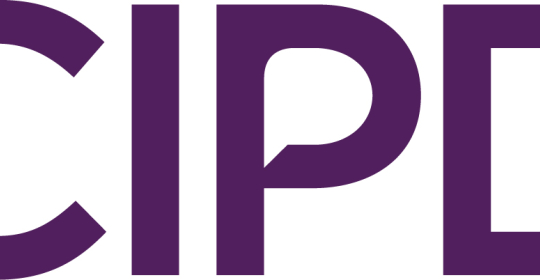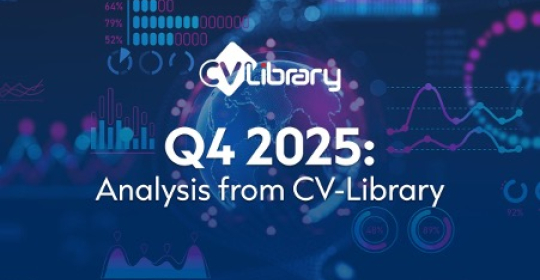- New campaign highlights the widespread use of AI in the job application process
- AI tools such as ChatGPT now used by candidates to support remote interviews (29%), online tasks or assessments (45%) and CV writing (53%)
- Over half (59%) of job applicants believe using AI tools in job applications is ‘fair game’ and 37% say they would not correct embellishments made by AI tools
- To learn more about the insurable risks that recruitment companies face from new threats like AI deception, visit hiscox.co.uk/the-perfect-candidate
A new campaign from specialist insurer Hiscox highlights the challenges facing recruiters and hiring managers as the use of AI tools by candidates in the job application process becomes common-place.
The data1 suggests 53% of candidates making job applications in the past 12 months used AI-powered tools to help create their CVs. AI CV builder tools are designed to simplify the process of CV creation by generating, optimising and customising content, as well as job matching and analysis.
In addition to CV support, the study also highlights the widespread use of AI tools to supplement remote interviews (29%) and the completion of online tasks and assessments (45%).
“AI can help many candidates put their best foot forward” commented Pete Treloar, Chief Underwriting Officer, Hiscox UK. “Using tools to sharpen language, tailor experience and improve presentation helps candidates level up their application, but it needs to be used carefully and in the right parts of the process.”
According to Hiscox, 37% of job applicants questioned said they would not correct embellishments to their CV that were generated by an AI tool, such as exaggerations of experience, skills or interests. This raises concerns over the integrity of the job application process and is particularly problematic for recruiters and hiring managers who struggle to distinguish between honest applications and those using AI to embellish or deceive.
Treloar continued: While it's easy to understand why candidates use AI to enhance their chances of success, when it’s not used well it can hinder an application. Large language models for example, can produce content that appears generic and impersonal, and responses that don’t truly reflect a candidate’s skills, experience and suitability for a role.
“For recruiters and hiring managers, who find themselves unable to accurately judge a candidate’s ability it’s particularly problematic. If they’re passing on incorrect information or poor recommendations to their clients, not only does it damage relationships, but it can lead to more serious claims and that’s why insurance is so important.”
Despite the prevalence of AI tools throughout the application process, opinion on their use amongst candidates remains divided. Four in 10 (41%) candidates think the use of AI tools is unfair on other applicants and 42% believe it’s misleading for employers and recruiters. In contrast, 59% think its use is “fair game” and 46% believe applicants that fail to utilise AI tools will find themselves at a disadvantage.
How to manage AI use by candidates:
1. Be aware of AI misuse and know how to spot it
Large numbers of similar-sounding applications and an increasing mismatch between written responses and in-person interviews or assessments are common signs of AI misuse by candidates. Screen applications for stilted, impersonal or overly-polished language and answers that lack specificity and anecdotes. If you’re unsure, follow up with a call to check for authenticity.
2. Educate your clients
Help the employers you work with improve their understanding of AI use, its risks and its prevalence. Encourage a proactive and open-minded approach to candidate use of AI, aimed at promoting fairness over forbiddance.
3. Review job application processes for AI vulnerabilities
Review your (or your clients’) end to end recruitment process to understand where the unfair use of AI tools is most likely to occur. It’s very easy for example, to misuse generative AI in remote interviews and verbal reasoning tests but less likely during task based assessments and in person interviews. Work with clients to improve and humanise the most at-risk areas.
4. Be clear about the policy on candidate use of AI
Guide candidates on where they can and cannot use AI in the process, and encourage employers to be transparent about their preferences. Allowing AI tools that help structure CV content or aid interview preparation for example, but discouraging use during live interviews or assessments, may help promote more proportionate use.
5. Make sure you’re covered
If it turns out a candidate is not who they seem and your client believes you’ve missed the signs or advised them incorrectly, they could make a claim against you. Having professional indemnity insurance gives peace of mind and can help with the costs of settling claims if this were to happen.
Dishonesty in the job application process
Overall, 38% of job applicants admit to being dishonest on their CV. Exaggerating experience (53%) was the most common embellishment, followed by adding hobbies that they don’t have (41%) a level of proficiency in skills that is untrue (33%) and references that are not real (14%).
The Perfect Candidate campaign
The study is part of a wider campaign by Hiscox to highlight the challenges faced by recruiters and hiring managers as the use of AI tools by candidates in the job application process becomes common-place. In a humorous take on a serious issue, Hiscox has created an AI-generated CV that at first glance, offers up the “Perfect Candidate”. With further inspection, the small print reveals the reality of bare-faced lies, deceit, and AI exaggerations. You can watch it here: https://youtu.be/xf57sNZNlTQ.
Developed by creative studio Uncommon, this is the first of a number of Hiscox campaigns shedding light on largely-unknown specific risks faced by specialist sectors like recruitment, to highlight the importance of having specialist insurance.
To learn more about the insurable risks that recruitment companies face from new threats like AI deception, visit hiscox.co.uk/the-perfect-candidate
1. Hiscox surveyed 1000 candidates that have made applications in the past 12 months. Undertaken in April 2025 by Attest. Attest | Enterprise-Grade Consumer Research Platform






